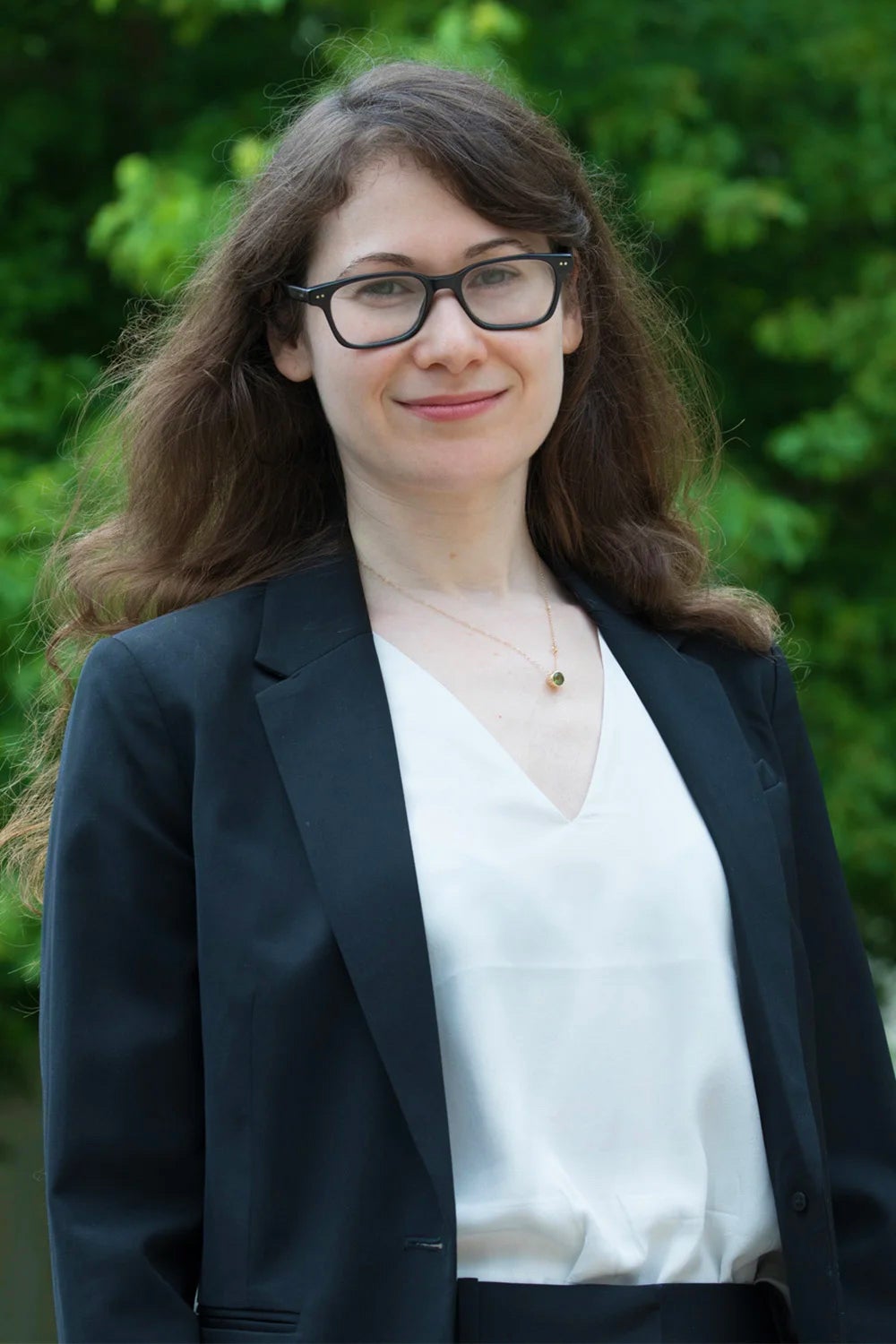This summer, Carmel Shachar J.D./M.P.H. ’10, joined the Center for Health Law and Policy (CHLPI) as assistant clinical professor of law and faculty director of the Health Law and Policy Clinic. Shachar is no stranger to Harvard Law School, previously serving as executive director of the Petrie-Flom Center for Health Law Policy, Biotechnology, and Bioethics. The Office of Clinical and Pro Bono Programs recently spoke with Shachar to learn more about her priorities, projects, and vision for the Health Law and Policy Clinic.

Under her leadership, the Health Law and Policy Clinic is gearing up to tackle an emerging trend of healthcare policymakers substituting their own judgments of appropriate treatment for that of doctors and their patients. This threatens to insert politics and ideology into individual medical decisions, argues Shachar.
“We’re in a really active period of the interaction between legislature, legislators and regulators, and the healthcare system, in that there are a lot of primarily state policies that feel increasingly like policymakers are substituting their judgments for what health care people should be able to get, rather than the physician and the patient making those decisions,” she says.
Recent examples include policies limiting preventive HIV care, substance use treatment options, gender-affirming treatments, and reproductive healthcare in the wake of Roe v. Wade‘s reversal, according to Shachar.
The clinic aims to push back on this overreach and empower patients to access necessary care based on medical evidence: “Our perspective is always that getting access to care is a really good thing. And how do we facilitate and empower access to care?”
Despite tackling policy issues, the clinic remains grounded in real-world needs by partnering with patient advocacy groups. “We’re working to build and maintain close ties with [community partners]…that can provide us that feedback to say, this is what people on the ground really need in this moment,” explains Shachar.
Students may advise physicians on leveraging telehealth to better reach breast cancer survivors, or work with hepatitis C patient groups to improve access to medications for incarcerated people post-release.
This blend of policy advocacy and community partnership informs the clinic’s drive to facilitate healthcare access. “I would say that the principle of access to care is really the foundational thread throughout CHLPI. We believe that people should have access to high quality care when they need it,” says Shachar.
A new element of the clinic under Shachar’s direction is an expansion of the clinic’s work on reproductive rights and justice in light of greater restrictions after Roe v. Wade’s reversal. Students will assist reproductive health providers and leverage telehealth to increase abortion access through multi-state partnerships.
“We are really excited to be building that out. We’re working with various partners across the U.S., especially those who are operating legal hotlines to identify the issues,” says Shachar.
For example, students may advise physicians on safely providing abortions in criminalized environments and defend providers sued under bans. They will also research using healthcare anti-discrimination provisions and telehealth to facilitate abortion access between states.
“It’s a really important legal question. We’re thinking about the provider side of things, because a lot of laws banning abortion actually criminalize the provision of abortion, so working with OB-GYNs, for example, to say, what are your obligations? And how can you live up to your professional responsibilities to provide evidence-based standard of care to your patients, when you’re in an environment where the state is criminalizing those provision of services?” explains Shachar.
The clinic’s work on reproductive rights is not strictly limited to abortion access. Says Shachar: “If you are pregnant, and you want to stay pregnant, do you have access to maternal care services? Is your pregnancy being criminalized? Because you’re, for instance, a woman with substance use who happens to be pregnant?”
Shachar has an eye towards expanding the CHLPI’s legacy of strong community partnerships in new areas; for example, the clinic hopes to collaborate with healthcare workers to address soaring burnout and departures, exacerbated by the pandemic, with the goal of sustainably maintaining access to care by supporting providers.
“More healthcare professionals leave the more overwhelmed and burdened the system is. We want to work with those folks to ask, what regulations need to be put in place that your profession and your workplace is sustainable and moving forward? How can you continue to provide access to care? Because there isn’t healthcare without the health care professionals who make the system run,” she explains.
The clinic also leverages Harvard’s top medical and public health schools to maximize impact. “One resource that Harvard Law School has in the health law space that I’m not sure any other school can match is the strength of our medical and public health counterparts,” says Shachar, who herself completed a dual J.D./M.P.H. degree with Harvard Law School and the Harvard T.H. Chan School of Public Health.
Students learn to collaborate across professions and marshal data into legal arguments. “Our students are not window dressing on our projects,” Shachar emphasizes. “They are really front and center, including arguing portions of our cases on our impact litigation team in front of federal judges.”
Ultimately, Shachar believes empowering patient access to appropriate medical care guided by doctors will require proactive policy reform and advocacy. Under her leadership, the Health Law and Policy Clinic aims to restore trust in the physician-patient relationship and remove politics from individual treatment decisions. By tackling issues like reproductive rights and provider burnout through impact litigation and community partnerships, the clinic is poised to drive meaningful change in the healthcare policy landscape while preparing practice-ready lawyers equipped to facilitate healthcare access. Wherever students’ careers ultimately lead, their clinic participation will provide the hands-on experience and perspective to be thoughtful contributors to critical conversations around healthcare in America.
Filed in: Clinical Spotlight
Tags: Center for Health Law and Policy Innovation, Health Law and Policy Clinic
Contact Office of Clinical and Pro Bono Programs
Website:
hls.harvard.edu/clinics
Email:
clinical@law.harvard.edu